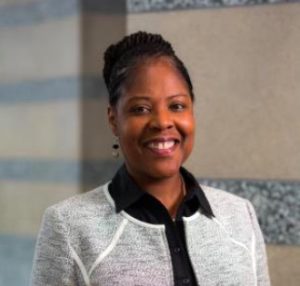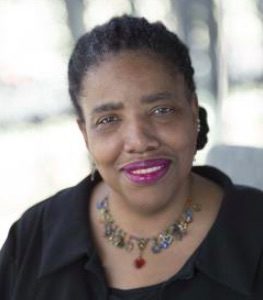Introducing MER’s Inaugural Excellence Awards
This year marks a first for the Museum Education Roundtable, as we kick off the inaugural edition of our new annual Awards for Writing Excellence for the Journal of Museum Education. Funded cooperatively between MER and our publishers, Taylor & Francis, these prizes will be awarded each year to one or more authors and editors in recognition of the high levels of scholarly dedication, original thought, leadership, and synthesis required to be published in the JME. In recognition of the special attention it takes to bring a stellar article and authors to the table, an additional honor is awarded to the guest editor(s) of the themed issue from which the article is selected. Being a great writer is worth attention; finding and nurturing those great writers is too.
Planning the criteria for the awards, reviewing a year’s worth of articles, and ultimately recommending and voting on our Excellence Awards was a team effort. Members of the MER Board of Directors serve on one of two teams, Editorial or Communications, and both had a hand in this year’s first awards. Editorial team members generated the guidelines for review, comment, and approval by the entire board, and then created the shortlist and final recommendations. Once the awardees were approved by all, Communications took over, notifying the winners, generating the press releases, and starting the happy business of letting everyone know the good news.
So what makes for an award winning article? The Award for Writing Excellence goes to the author(s) of the articles deemed by members of the Museum Education Roundtable board and editors of the Journal of Museum Education to be novel, thought-provoking, and of the highest caliber of scholarship and writing. Two articles (by one or more authors) will be awarded per year, one for an article that is part of an issue’s theme, and one for independently submitted articles.
The Award for Editorial Excellence goes to the guest editor(s) of the themed issue from which the Writing Excellence article was chosen. All three awards come with a small monetary prize and the recognition and admiration of peers and colleagues.
In a year full of weighty topics, timely discussions, and remarkable insight, choosing the shortlist was a difficult task, as was narrowing it down to the finalists. The winners of the inaugural MER Awards for Writing Excellence and Editorial Excellence highlighted and advanced important conversations many of us are having, wish to be having, or need to be having about race, racism, and equity in museums. The topic itself is not new, and not new to museum educators, many of whom have been been vanguard among the museum profession in advocating and implementing radical anti-racism pedagogies and andragogies as a function of their training and professional experience working with children, youth, and families in galleries for decades. But the current moment, which holds on the one hand, an an American President widely denounced for racist rhetoric and policies, and on the other hand, surging grass roots activism such as Black Lives Matter and the Women’s Marches, presents opportunities for new approaches and an ongoing urgency for the work. Museum Educators are proving to be strong leaders in movements for greater anti-racism work on both the inner and outer workings of our institutions. These award-winning articles shine a light on early childhood and racial identity; on Critical Race Theory as it applies to museum education, and on inclusion-based museology at the newest Smithsonian on the block, the National Museum of African American History and Culture.
Meet the authors and editors:
Melanie Adams
 Melanie Adams is the Senior Director of Guest Experience and Educational Services at the Minnesota Historical Society where she oversees education, exhibitions, and 26 historic sites. In this role she is responsible for developing and implementing strategies to create a statewide belief in the power of history to transform lives. Before joining MNHS, she served as the Managing Director for Community Education and Events at the Missouri Historical Society for twelve years. She is past president of the Association of Midwest Museums and current council member of the American Association of State and Local Historical Societies. She received her B.A from the University of Virginia, her M.Ed from the University of Vermont, and her Ph.D from the University of Missouri
Melanie Adams is the Senior Director of Guest Experience and Educational Services at the Minnesota Historical Society where she oversees education, exhibitions, and 26 historic sites. In this role she is responsible for developing and implementing strategies to create a statewide belief in the power of history to transform lives. Before joining MNHS, she served as the Managing Director for Community Education and Events at the Missouri Historical Society for twelve years. She is past president of the Association of Midwest Museums and current council member of the American Association of State and Local Historical Societies. She received her B.A from the University of Virginia, her M.Ed from the University of Vermont, and her Ph.D from the University of Missouri
Anna Forgerson Hindley
 Anna Forgerson Hindley works at the Smithsonian’s National Museum of African American History and Culture (NMAAHC) as a supervisory education specialist and head of the museum’s early childhood education initiative. Her work focuses on positive identity development with young children at museums and interrupting structures of racism and inequity. Previously she served as the Senior Museum Education Specialist at the Smithsonian Early Enrichment Center, where she shared her passion for museums and early childhood education. Through her experiences as an educator at a variety of museums, including the National Museum of American History and the Orange County Regional History Center, and her work in curatorial departments at the National Portrait Gallery and the Corcoran Gallery of Art, she is committed to uplifting museums and objects to provide powerful opportunities for learning and personal meaning making.
Anna Forgerson Hindley works at the Smithsonian’s National Museum of African American History and Culture (NMAAHC) as a supervisory education specialist and head of the museum’s early childhood education initiative. Her work focuses on positive identity development with young children at museums and interrupting structures of racism and inequity. Previously she served as the Senior Museum Education Specialist at the Smithsonian Early Enrichment Center, where she shared her passion for museums and early childhood education. Through her experiences as an educator at a variety of museums, including the National Museum of American History and the Orange County Regional History Center, and her work in curatorial departments at the National Portrait Gallery and the Corcoran Gallery of Art, she is committed to uplifting museums and objects to provide powerful opportunities for learning and personal meaning making.
Julie Olsen Edwards
 Julie Olsen Edwards, the co-author of “Anti-bias Education for Young Children and Ourselves” was the founding director of the Cabrillo College Children’s Center, Director of the Department of Early Childhood and Family Life Education at Cabrillo and served on their faculty since 1971. She was a national board member of the National Association for the Education of Young Children (NAEYC) from 2003 to 2007. Her work has been published in multiple journals and she is a frequent consultant and speaker on issues of child development and family support in a highly diverse and still inequitable world.
Julie Olsen Edwards, the co-author of “Anti-bias Education for Young Children and Ourselves” was the founding director of the Cabrillo College Children’s Center, Director of the Department of Early Childhood and Family Life Education at Cabrillo and served on their faculty since 1971. She was a national board member of the National Association for the Education of Young Children (NAEYC) from 2003 to 2007. Her work has been published in multiple journals and she is a frequent consultant and speaker on issues of child development and family support in a highly diverse and still inequitable world.
Esther J. Washington
 Esther J. Washington has been an educator for three decades, specializing in museum education for most of that time. She is currently the Director of Education at the Smithsonian Institution’s National Museum of African American History and Culture. This is the second time she has established a Smithsonian education department and its inaugural volunteer, student and public programs. Previously she was the Head of Education at the Smithsonian’s National Postal Museum and prior to that served as the Intern Services Coordinator at the Office of Museum Programs, coordinating the Institution’s 700 interns annually. Ms. Washington began her career working in Washington D.C. independent and public schools and her museum career at the then Capital Children’s Museum.
Esther J. Washington has been an educator for three decades, specializing in museum education for most of that time. She is currently the Director of Education at the Smithsonian Institution’s National Museum of African American History and Culture. This is the second time she has established a Smithsonian education department and its inaugural volunteer, student and public programs. Previously she was the Head of Education at the Smithsonian’s National Postal Museum and prior to that served as the Intern Services Coordinator at the Office of Museum Programs, coordinating the Institution’s 700 interns annually. Ms. Washington began her career working in Washington D.C. independent and public schools and her museum career at the then Capital Children’s Museum.
Melanie Adams has received the Award for Writing Excellence for her individual article, “Deconstructing Systems of Bias in the Museum Using Critical Race Theory,” in issue 42.3 of the JME. In this article, Adams describes the basic tenets of Critical Race Theory, and applies them to museum case studies to highlight museum practices that de-center white normativity, center and honor the work of people of color in the arts, and work towards dismantling racism in exhibitions and programs. Adams presented an earlier version of this paper at the EdCom Awards Luncheon at the American Alliance of Museums Annual Meeting in St. Louis, MO, in May 2017, to much acclaim.
Anna Forgerson Hindley and Julie Olsen Edwards have received the Award for Writing Excellence for their co-authored article “Early Childhood Racial Identity– The Potential Powerful Role for Museum Programing,” in the guest edited section of issue 42.1 of the JME. This article examines how the National Museum of African American History and Culture approaches conversations on race with young children and their families and teachers.
Esther J. Washington and Anna F. Hindley have received the Award for Editorial Excellence for their work co-guest editing issue 42.1 of the JME “Race, Dialogue and Inclusion: A Museum on the National Stage.” Their guest-edited issue “focused on the knowledge that race is a social construct that has a powerful and lasting impact on society, and how the renewed national discourse about race has impacted and will continue to impact the work of our museum and others.” Their issue also celebrates the opening and achievements of the 19th Smithsonian Institution museum, the National Museum of African American History and Culture.
What issue will propel us forward in 2018? Perhaps it will be yours! Every article accepted for publication in the JME is eligible for the Excellence Awards. We invite you to share your theoretical and practical insights by contributing to the JME. Learn more here.

